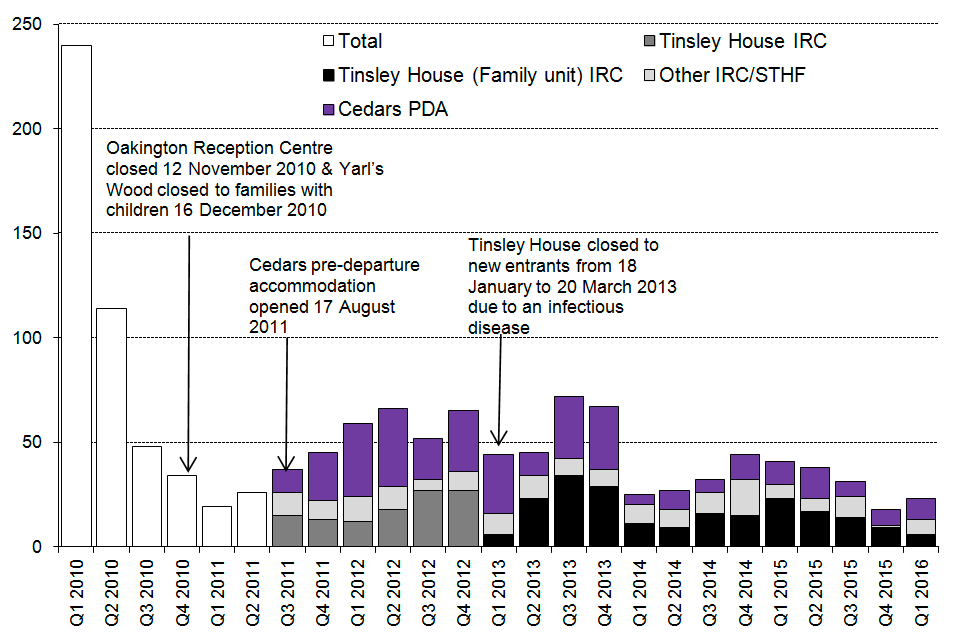28 July 2016
In its latest inspection report on Colnbrook detention centre, HM Inspector of Prisons said ‘There should be a strict time limit on the length of detention and caseworkers should act with diligence and expedition.’
Colnbrook detention centre, near Heathrow Airport, detains up to 396 migrants, including 27 women who are held in a separate unit. The centre suffered from a lack of maintenance during the period of management contract transfer from Serco to Mitie a few years ago, resulting in significant deterioration of parts of the centre.
The inspection team said that the numbers of cases of prolonged detention they found were lower than in their last inspection in 2013 but were ‘still too high’; out of 322 who were in custody at the time of inspection, 32 had been there between six and 12 months; 20 between one and two years and three people for more than two years. One person was continuously detained for four years and eight months, whose case ‘had been exacerbated by casework inefficiencies and administrative delays’.
The inspection team found some casework to be poor; some detention reviews ‘did not consider factors for and against detention in a balanced way’ and some cases which would not be concluded within a reasonable period of time were also still detained.
The report also recommends that people with severe mental illnesses should not be in immigration detention. Other recommendations to the Home Office include:
– All individuals at the detention advice surgeries should be given enough time to explain their circumstances and receive appropriate advice over the full allocated half-hour interview.
– The Home Office should stop the practice of preventing people who are deemed uncooperative from working.
– People in detention should have access to Skype and social networking sites unless an individual risk assessment determines that this is inappropriate.
– Only those individuals volunteering for removal should be placed on a reserve list for a charter flight.
The inspection found that 48% of those detained felt depressed or suicidal when they first arrived. Yet, no private interview on arrival means that that there is no effective assessment of needs, although full risk assessments are carried out within a few days of arrival. The report also reveals that there is an ongoing investigation into a death which happened in February 2016.
Following an escape in December 2015, the use of handcuffs has increased from 30% to 55%. Those detained remain confined in their cells from 9pm to 8am. Only just over 50% of the surveyed said that they were treated with respect.
Overall, the report paints a mixed picture of the detention centre, which appeared to be still in the process of stabilising itself after a contract change. The inspection team also found:
– the new management now allows for free movement of individuals in the centre, achieving a calmer atmosphere
– improved use of the Rule 35 procedure, a safeguarding mechanism for vulnerable individuals to be considered for release on medical grounds
– a well functioning welfare team, better access to recreational activities, positive teaching and learning despite a narrow range of available education
– the poor state of the induction unit
– continuity and consistency of healthcare provision is compromised as a result of staff shortages
– although mental health care and support was generally good, ‘it was concerning that people with such severe illnesses were in immigration detention at all, especially as some spent long period in the separation unit’
You can read the full report here.

